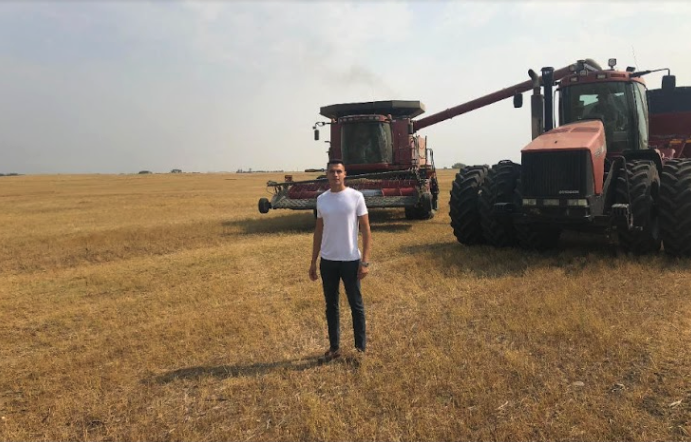May 30, 2022
Mehmet Sonmez is a Partner at Armada Foods, one of the largest pulses companies in Türkiye. He has been with his family’s business for three years, continuing a proud tradition. Jesse Sam spoke to him in April to learn more about the company and their outlook for the red lentils market. Armada Foods was a strategic sponsor at Pulses 22, supporting the Red Lentils panel.


Armada is a Turkish company which has been in the pulses industry for 30 years. We import, export, process and pack pulses. We do red lentils, chickpeas, and yellow peas. Bulgur is also a big product for us. Armada is a family company, and I am part of the fifth generation of Sonmezs in this industry.
We sell a lot in Türkiye but we also import from 45 countries and export to 85 countries. So we trade everywhere in the world. I would say our biggest markets are Europe, North Africa and the Middle East. So we work with countries like Iraq, Germany, Syria, Algeria, Netherlands, and the United Kingdom.
We import products from all of the major pulse origins in the world and then re-export them to these final destinations. Being in Türkiye is essential to this strategy, as it gives us great flexibility with quicker shipment and transit times.
We are in Mersin — the pulses capital of Türkiye, or maybe even the world! Our facility there is one of the most modern pulses and grain facilities in Türkiye. It sits on 40,000 square metres, with 5 vertical silos and a capacity of 33,000 metric tons.
We are able to produce nearly 1,000 tons of lentils and bulgur (combined) each day. Our 4-line sifting facility can work through 600 tons of pulses each day and our packaging facility can produce 400 units everyday.
Sure. We’ve been trading red lentils for 50 years so we know the market very well. We mainly source from Canada and then distribute to the regions I previously mentioned (Europe, North Africa, Middle East). Other than Canada, we source from all other origins, including Australia, Kazakhstan, Russia, and Ukraine. We do some sourcing from Türkiye as well.
There are actually a few factors that are proving to be quite favorable for our red lentils business at the moment. The first is the currency situation in Türkiye. As you know, the Lira has lost a lot of value against the US dollar. That increases the cost of fertilizer, which Turkish farmers have to import. So they are switching the production away from wheat — which requires fertilizer to grow — toward things like red lentils and chickpeas. So we’re seeing increased acreage for red lentils.
The second factor is government policy. The government has been managing the price of wheat to control inflation and ensure affordability for consumers. But as the cost of inputs (like fertilizer) have gone up, the return on investment has gone down. So they have been looking for alternatives that bring them better returns and lentils has been one of those products.
And the outlook for this year’s harvest is fair. Like I said, the acreage has increased. But we’re still seeing some side effects from last year’s droughts. The sub-level moisture of our lands is still showing signs of dryness. However, we have seen better rains, which will help. So we’re not expecting a bumper harvest but we could see around 300,000 to 350,000 tonnes.

We will have to wait and see what happens with the war. But I definitely think this price increase will be prolonged for another year.
So there is definitely inflation and devaluation, which has caused some issues in the Turkish economy. But actually, as exporters, it doesn’t really affect us. In fact, it actually works to our advantage: it makes our products cheaper for international buyers. However, we do want to see the economy stabilize for everyone.
Again, we haven’t really seen much of an impact. These are staple foods we are trading in and they need to be consumed. So demand has been quite resilient, despite all these shocks.
So two big things. One, we are investing in a new facility. It's going to be double the size of our currently existing plant in Mersin — so that will be a huge boost to our processing capacity. We are also launching a processing facility in Kazakhstan, so that's a really interesting development for us.
Well Kazakhstan has been increasing its pulses production in recent years — between 2010 and 2019, the country went from zero lentil exports to 180,000 tons, so it’s an important growing market. People have even been calling it the Saskatchewan of Asia.
Disclaimer: The opinions or views expressed in this publication are those of the authors or quoted persons. They do not purport to reflect the opinions or views of the Global Pulse Confederation or its members.